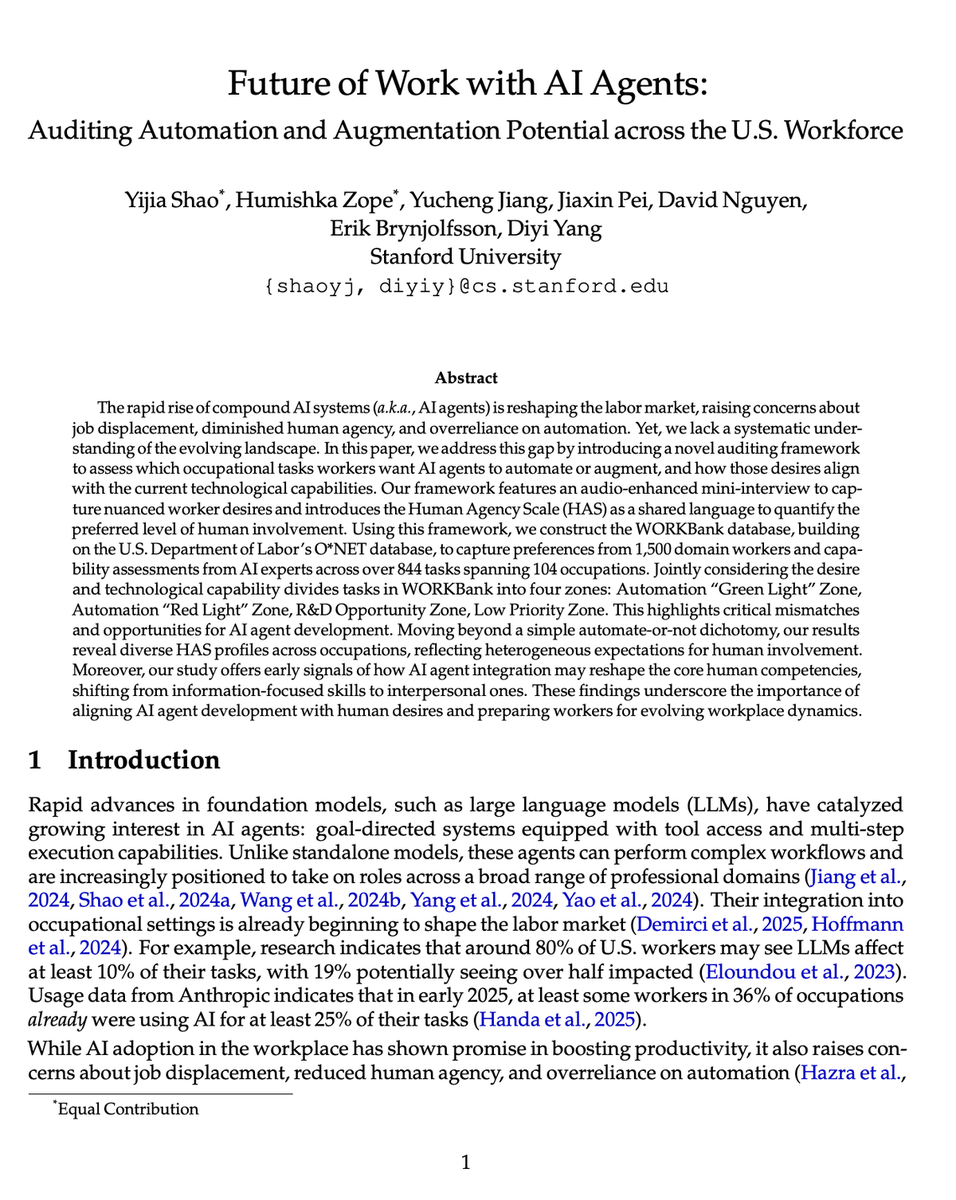
Diyi Yang
@diyi_yang
Assistant Professor @Stanford CS @StanfordNLP @StanfordAILab
Computational Social Science & NLP
ID: 812127939663974407
23-12-2016 02:49:24
1,1K Tweet
17,17K Followers
1,1K Following


Super comprehensive paper from Yijia Shao and Humiska asking a fundamental question: what tasks do people *want* automated by AI? This is my favorite figure, tons to learn from this work!





From Future of Work with AI Agents: Auditing Automation and Augmentation Potential across the U.S. Workforce. A link to the paper. arxiv.org/abs/2506.06576 Co-authored with Yijia Shao Humishka Zope, Yucheng Jiang, Jiaxin Pei, David Nguyen and Diyi Yang Some interesting









Chatbot companions are going to be our society's next moral panic, I suspect. Work by Yutong Zhang suggests that people turn to them especially when they lack outside social support.

Thrilled to share that I'll be starting as an Assistant Professor at Georgia Tech (Georgia Tech School of Interactive Computing / Robotics@GT / Machine Learning at Georgia Tech) in Fall 2026. My lab will tackle problems in robot learning, multimodal ML, and interaction. I'm recruiting PhD students this next cycle – please apply/reach out!











